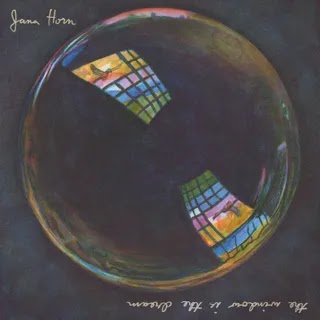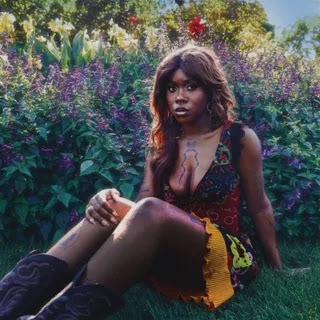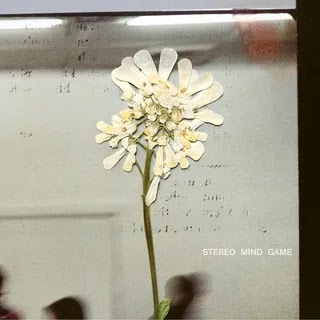Recorded in Los Angeles, the songwriter and guitarist’s sixth solo album is ambitious yet effortless. Even his lead guitar seems almost to melt away into the delicate arrangements.
Steve Gunn had a note in his head, but his voice couldn’t find it. While tracking harmonies for Other You, his sixth solo album, he was struggling to hit his mark, so producer Rob Schnapf took a recording of Gunn’s voice and digitally shifted the pitch to match the intended note, then instructed him to sing along. The proper target in place, Gunn managed to join in with his digital simulacrum—the “other you” of the title. If this is starting to feel like a very neat metaphor, this idea of aligning yourself to who you can’t yet be and finding a way to get in tune with it until it stretches you into becoming that new thing—well, welcome to Steve Gunn’s L.A. record, baby.
Like the city in which it was recorded, Other You is a sprawling and decentralized tangle of ideas, people, sounds, and, yes, vibes, all of it lit in the merlot purples and maraschino reds and Pacific Ocean blues of a Southern California sunset. It’s the most ambitious album he’s ever made, and the first one in which his guitar-playing—a singular sound that typically draws together the hand-punched tin of old-timey rag with the needle-nose scribbling of Tom Verlaine—is largely undistinguished. Where on Gunn’s earlier albums the guitar functioned as an exceptionally well-honed vessel for his personality, both the delicacy of his arrangements and the calm clarity of his band on Other You make it feel as though that same personality has been distributed across the entire ensemble; even when it’s the lead instrument, Gunn’s guitar sometimes seems to melt away. As a result, Other You sounds unlike any previous Steve Gunn album, but it’s impossible to imagine it being made by anyone else.
Gunn has said that recording in L.A. gave him the space to try out new sounds and compositional approaches. That includes bringing in a number of guest artists who buy completely into his vision. Julianna Barwick’s vocals shine like a cold sun through the dust of “Good Wind,” a perfect complement to the resolute and earthy runs Gunn pulls from his acoustic guitar; alternating between a pair of notes so close she sounds like she’s flipping over a sheet of paper, her vocals are a dome under whose safety the song’s passages are able to thrive. While Gunn sings of “Leaning on the window, feeling more alive” in “Morning River,” Ben Boye turns the ends of the lines around with his piano, as if he’s holding the words up to study them in the light. Even the gorgeous ballad “Reflection” is streaked with a screaming handful of chords from Jerry Borgé’s synth.
Like a plane taking off, Gunn’s songs move at a rapid horizontal speed while their vertical lift feels gentle and eventual. This upward draft is stronger than ever on Other You, owing in large part to Schnapf’s close-tracked production. Everyone’s parts occasionally seem to run into one another, and the album at times feels dewy, like a book left overnight on the beach. In the title track, which opens the album, Gunn sings of unearthing “precious metal memories” and taking them “down to salvage [to] find out what they’re worth.” He’s talking about how the buried self may (or may not) be of much greater value than one would think, that true potential can be plucked from the dirt. But he may as well be talking about the value of sharing the ineffable things we already know about ourselves but can’t quite see or articulate—the non-rational, difficult-to-quantify stuff that springs from the loamy soil of the self. The band here isn’t really playing together so much as they seem to be growing from the same source, like trilling koru of sound that gently roll upward and outward as they depart from Gunn’s vocals at the center of the song.
He retreats from the center in “Sugar Kiss,” the album’s sole instrumental, co-written with Mary Lattimore. As arpeggios trickle from her harp like pebbles over glass, Gunn brushes away at a 12-string guitar set so deep in the distance it virtually becomes a percussion instrument, while Schnapf uses his guitar to bow drones of feedback back and forth across the channel like he’s playing a cello. Matt Schuessler responds like Cecil McBee to the rest of the Alice Coltrane group on Journey in Satchidananda, his bass reacting to the angelic environs with a series of gulping surges that both ground the song and slacken to let it float back up.
But Gunn is not merely the ghost animating Other You’s remarkably ornate machine. The vocal melodies here are among the tenderest he’s ever written, and they carry the same sense of inevitability that he invests in his guitar lines; they sound so natural, it can be easy to overlook their formal complexity. Even when he pushes into new territory, as he does in the cosmically adrift “Reflection,” he doesn’t come across as lost so much as patiently awaiting an outcome. An underlying security, whether in himself and his abilities or in his surroundings, is at the heart of what makes Gunn’s music feel so distinct—the anxiety that exists in his catalog always seems to resolve in the musical equivalent of a centering exhale, which is really just another word for acceptance—and on Other You, the mood never wavers.
Steve Gunn isn’t the first person to take a trip to Los Angeles with the intention of shifting their perspective, only to discover that the possibility they sought was within them all along. There’s something about the way the long light on L.A. evenings paints everything it touches that compels you to find greater meaning in the moment, even if the moment is fairly ordinary; a grand context seems to demand a grand explanation. This light shines through Other You at a low angle, illuminating it like a dinner party on a terrace. Here, surrounded by friends, at ease in the gloam, suspension reigns. Things may be rough, and exhausting, but in this present moment, there is an overwhelming sweetness.
















0 comments:
Post a Comment